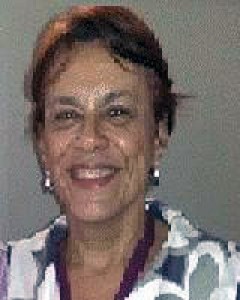Introduction
Primary health care (PHC) in Brazil is a key component of an articulated health network. It is a strategy for the organization of health care through the Family Health Strategy (FHS), which responds regionally, continuously and systematically to most of the population’s health needs, integrating preventive and curative actions1.
The FHS is a priority strategy for the expansion and consolidation of PHC in Brazil, and it is the first point of access and the preferential gateway for people in the public health system in Brazil2. It is guided by the principles of PHC, namely accessibility, longitudinality, coordination, comprehensiveness, cultural competence, family and community orientation3.
The work of FHS professionals takes place in territories, which are geographic areas that includes local and regional specificities and have delimited populations, registered in Family Health Units (FHU), varying from 2000 to 3500 people. In rural areas, this parameter can be redefined – because the population is dispersed in each territory, there is a need for a smaller number of people registered in each FHU, in order to enable the planning and implementation of health actions by the team2.
The nursing team, as a part of the FHS team, performs educational, assistance and administrative activities and contributes to the resolution in the different levels of health care. It has a unique contribution in the understanding of people that goes beyond the biological aspects, and this is effective in the implementation of nursing care through the construction of interpersonal relations of dialogue, listening, humanization and respect.
In rural areas the nursing work at the FHS often occurs in situations of relative isolation or with smaller and less resourceful teams4. Another problem is the persistence of imbalances in the availability, distribution, composition, qualification and productivity of these professionals, which has implications for the outcome of the health care provided5.
In Brazil, despite the existence of a National Policy on Comprehensive Health of Countryside and Forest Populations in Brazil, there is no specific PHC policy for rural areas6. In this context, the Brazilian government has presented some initiatives in the past decade. The first, the Valuation Program of the Primary Care Professional (PROVAB), created in 2011, aims to stimulate and value the multiprofessional team working in areas of greater vulnerability and lack of health care. The nurse is a member of the PROVAB team and contributes to strengthening PHC work in rural and remote areas, contributing to the reduction of health inequities and improving universal coverage7. The second, the Mais Médicos (More Physicians) program began in 2013, and aims to address the deficit of doctors in areas far from large centers (as well as in rural areas), the small number of medical professionals per inhabitant and the narrowing of medical training with professional practice under the Sistema Único de Saúde, Brazil’s publicly funded healthcare system8. In the rural territories, there are some peculiarities: the divergent social determinants from the urban zone, the distance between training centers, and the devaluation of the category for integrating PHC9. Even so, this gap is still present in the current policy (GM Ordinance 2436/2017)2 that regulates PHC in Brazil, and it may remain with the newly elected Brazilian government. Internationally, there have been difficulties such as keeping health professionals in remote and rural areas, poor distribution and high turnover of these workers, especially physicians10.
In a US study of rural chief executive officers, a shortage of rural physicians was reported by 75.4%, and 70.3% indicated shortages of two or more primary care specialties. The greatest deficiency reported in specialties was in family medicine (58.3%). The study also pointed out that nurses (73.5%), physiotherapists (61.2%) and pharmacists (51%) are the three most commonly needed health professions11. In Peru, among the studies that show inequalities in the distribution of health professionals from the public sector in rural and remote areas without a sufficient number of professionals, particularly physicians12, a study was conducted on factors related to the reasons for students of medicine, nursing and obstetrics to choose a career, their job expectations, motivations and incentives to work in rural areas. The results showed that the preference for urban jobs was already established during undergraduate training. Medical students reported expecting to work in large urban hospitals, and nursing and obstetric students were more willing to work in rural areas than physicians, especially students of rural origin13. A systematic review on the rural definition of health, which selected published articles based on observations of rural populations in the USA, Canada and Australia, showed that good health status was commonly characterized rurally as being able to work, exchange in social relations and maintain independence14. These rural definitions of health require skilled professionals to meet the needs of the population.
In this sense, considering that the provision of effective and quality health care in the rural context is a challenge for all nations15, that rural health should not be isolated from the health system as a whole and that coverage and universal access has been sought by all countries16, it is necessary to look at the specificities existing in the rural environment in order to guide nursing research in health systems and services.
From this perspective, considering that the health workforce is crucial to address inequalities in health care, and considering that there are scarce and poorly contextualized studies in the international and national scenario that relate nurses’ work to the rural context, this study aimed to investigate the satisfaction and difficulties of PHC nurses’ work in rural areas.
Method
This is an exploratory case study17 of a qualitative approach, which aims to know in depth the work of the nurse in rural areas of PHC, seeking detailed and systematic information.
The ‘case’ is characterized as multiple cases18, which were the rural health units of three rural communities located in different geographic areas where nurses of the FHS teams work in Campina Grande, a large city of the state of Paraíba, Brazil.
Campina Grande is one of the largest cities in the interior of the north-eastern region of Brazil. It has an area of 621 km², of which the urban area is 201 km² and the rural area is 420 km². It had an estimated population for the year 2017 of 410 332 inhabitants, with an urban population of 367 209 inhabitants and a rural population of 18 004 inhabitants18. In the political-administrative division the city has three rural districts: Galante, São José da Mata and Catolé de Boa Vista. The metropolitan region is formed by 19 cities, with a population of 638 017 inhabitants19.
The PHC of the Campina Grande is composed of 107 FHS teams working in 76 Family Health Units (FHUs) and covering 92% of the population of the city. Of this total of FHUs, 66 are urban and 10 are rural units20. Each FHS team is composed of the following professionals: nurse, physician, dental surgeon, nursing assistant or technician, oral health assistant and community health workers.
Participants were intentionally selected according to the following inclusion criteria: being a nurse from an FHS team of Campina Grande, Paraíba, Brazil; having been working in an exclusively rural area for at least 6 months; and composing the professional staff of the municipal government. There were no exclusion criteria. All 11 nurses from the rural areas of Campina Grande met the inclusion criteria and accepted to participate in the study.
Data collection was conducted from January to March 2017 through interviews with a semi-structured script in a private room at the workplace of the participants, as previously scheduled. The interviews were individual, lasting approximately 30 minutes and audio-recorded after the signing of the informed consent form. The audio-recordings were fully transcribed, organized and submitted to content analysis, by following three steps: pre-analysis, in which the researchers performed the first general reading of the transcripts, then thorough reading of the material for analysis; selection of the recording units from the cut of speeches and subsequent organization; and treatment and interpretation of the results21. In order to preserve anonymity, participants were identified by the letter P along with a sequential number (P1 to P11), following the order of the interviews.
Ethics approval
This study derives from the doctoral thesis titled ‘The meanings of work for nurses in the daily routine of the Urban and Rural Family Health Strategy’, which followed the Brazilian National Health Council norms, Resolution 466/12, with approval by the Ethics Committee in Research of the Federal University of Minas Gerais under protocol no. 62508016.1.0000.5149.
Results
The health professionals interviewed were characterized by the age group of 30 to 50 years (90%), with a prevalence of women (91%) and residents of the city of Campina Grande (73%). There was a predominance of professionals with complete graduate courses (91%), of whom 21% had completed a master’s degree and 79% had completed specialization courses. Number of years working in the FHS in the rural area had a broader range: 1–6 years (45%), 7–12 years (45%) and more than 12 years (9%).
Reports on the organization of nurses’ work to care for patients and families in rural areas show diverse and sometimes contradictory feelings. Thus, the results were organized into two categories: nurses’ satisfaction with work in rural FHSs and nurses’ difficulties with work in rural FHSs.
Satisfaction
Nurses’ satisfaction with work in PHC in rural areas is related to different situations and feelings, including personal satisfaction, teamwork, and relationship with the community. Satisfaction was grouped into five categories:
1. Relationship with the community:
… you have that closer contact with families, you go into their home, you know every person who owns a home, so you end up dedicating yourself more, professionally. (P-2)
… we create bonds with the community to the point that they seek us for some problems that are not even our responsibility … They have such trust and credibility in us that they end up looking for us and we meet this longing of the community … We meet it as much as possible. (P-4)
2. Teamwork:
… the daily routine is pleasant with the staff. Our team is very close to each other, we can say, a young team. The team respects me a lot; they have me as a team leader … the team has a very great respect, a very great confidence in me and also in other nurses because they have already had this training that the nurse is the team coordinator. (P-7)
Our team is very good, we are very united and they arrange everything. I think so. When I do not come, they say ‘this unit, when you are not here, nothing works’. (P-10)
3. Professional identification:
For me it is pleasurable, it is very pleasurable. I have once heard a sentence, in fact I never forgot it, it is like, ‘do what you like and you will never need to work’. And I really don’t mind, I would stay here until five, six o’clock and I would not mind. I like it very much; I feel very comfortable here’ (P-2)
I have worked in rural areas all my life; I have always liked the rural area, riding a motorcycle with the health workers, under the rain, under the sun, passing through a stream, passing over stones and reaching the house of an old man, taking a medicine for him, seeing the joy in his eyes, and hearing ‘I have missed you …’. I promote healthcare; this is very good’. (P-9)
4. Improvement of population health status:
I think we have decreased a lot and been able to control high blood pressure, diabetes. We have almost no deaths here. We have no child deaths; we follow children from zero to two years old properly, every month. I think we have contributed a lot for the health-disease process. (P-8)
The most important aspect is in relation to prenatal care; we have zero deaths of puerperal women, zero deaths of newborns also, and we have almost 97% of vaccination index. (P-3)
5. Appreciation and recognition by the community:
I feel very appreciated in working in the rural area. If you ask me, do you want to move from this unit to an urban area? I tell you no, leave me here until I retire. (P-3)
It is very rewarding when you receive a compliment for your work. Knowing you did something right, you did something that improved, let’s say, 70% of that person’s life. (P-9)
Difficulties
The difficulties found by nurses in their work in PHC in rural areas are related to situations that are found only in rural areas, to the working conditions that determine a different organization of work, increased workload and the lack of recognition of professional work by local health managers. The difficulties were organized into four categories and some subcategories:
1. Specificity of rural families:
… the rural community has more difficulty to access, especially when it comes to the city. The population is more needy; there are many people who are farmers and with the issue of drought, people are not able to produce enough for survival. There are many unemployed people, so financial and economic conditions are often more precarious than in urban areas. Those working in the rural area have difficulty in basic things, such as transportation, taking a blood test because the person cannot afford transportation … (P-6)
… another difficulty in the rural area is the accessibility to the SUS [Sistema Único de Saúde] card. If they go to town to do it, they will pay 40 reals for transportation. Most live on the Bolsa Família grant program and sometimes on a rural retirement grant. (P-8)
2. Work conditions:
- Commuting to rural areas and work schedule:
We have the car that takes us here, but the conditions of the car are very poor. We do not feel safe. We risk our lives every day because we are in a federal road. Of course when you leave home there is this situation, but when you go out on a federal road you risk much more, and in a car belonging to the municipal health secretariat that has no maintenance, the risks are even higher. We have already got broken [down] in the federal road, without fuel. (P-10)
The work in the rural area is different; every day we are in a different place. … we go one day to each place, so you end up attending everybody together. There is no way to make a day only for hypertensive and diabetes patients, only for pregnant women. So, this is different in relation to the urban area, where we can organize the schedule better. (P-6)
- Precarious physical infrastructure, lack of equipment and medicines:
… in some moments of my daily work I feel helpless, there is lack of medicines, sometimes referral for specialized consultation, and many people cannot afford the medication, the examination or a specialized consultation … (P-1)
… I think we are up against the tide. You spend the whole time trying to put out a fire here, another there, and it runs out of our control, right? (P-6)
- Lack of water in the units:
Some days we could not provide care because we did not have any water in the reservoirs, nor even to wash our hands in a bucket. We explained to the community, there were people waiting, but we [said], today we will come back because there is no water not even to wash our hands. (P-4)
There are days we get stressed, when we arrive here and there is no water in the unit … this is another big obstacle. The worst thing is that we have to stop performing cytological examination, stop vaccinating, but we do not stop providing care, we do not stop completely … We do what we can, not to harm the users because they are not guilty either … but then the care provided is not complete. (P-5)
- Access to information and communication technologies:
We have this landline telephone that is not inside the unit, it is a pay phone that we have out there, but it does not make nor receive calls. Also, we have no cell phone and no internet. So, when we get here we get really incommunicable; we get stuck. There are moments that you want to talk to a colleague at that moment and there is no way; this is another obstacle. (P-2)
We do not have a telephone; we cannot schedule examinations. In the urban area we make a phone call, the receptionist calls the central office and schedules an examination for that same day. We refer a patient and do not receive counter-reference, you see? We do not have internet, accessibility is limited, we send everything by paper, all in a protocol; we send examinations to the polyclinic but when they arrive at the health secretariat, many papers have been lost. (P-7)
4. Work overload:
Everything we are going to do here in the rural area we have to solve there [urban area] before and then bring it here [rural area]. There are some examinations that have not been scheduled since November. So, those exams that I see that are urgent, I take them to schedule myself. So, I have to go first to the health secretariat to solve everything so that I can come here and when I get here, it has been already a time that goes beyond what it should have … so that does not make me feel good … (P-8)
… everything that happens in the health unit, all the problems, they look for the nurse. For example, when there is no cleaning supplies, the cleaning worker comes to the nurse; when a lamp breaks, they come to the nurse. I do not work only with patient care, but also with administrative issues that take a lot of my time; the administrative and bureaucratic issues of the unit are all under my responsibility. The bureaucracy causes anguish because there could be a person to solve these bureaucratic issues and this would lighten the nurses’ work and we could provide better assistance. (P-4)
5. Lack of professional recognition by managers:
I feel unaided by the managers. The accomplishment of the work is given with good working conditions; you can only do a great job if you also have great conditions. So, the accomplishment of my work will depend on the conditions I have both in relation to the health unit and to the physical structure, materials and equipment, human relations … (P-4)
… the public power should give a better look to the rural area, because it is difficult for the professionals. We feel [we have] our hands tied; we want to solve it and we cannot do it and that causes embarrassment to the professionals. The rural area, if you look closely, is kind of overlooked while the urban area has a better focus; it is closer, they have more attention. If we had more conditions, we could do more for the population; this brings satisfaction to the professional. (P-7)
Discussion
The characterization of the study participants revealed a profile of qualified professionals and with little turnover, differing from the international scenario in which it is difficult to retain health professionals in these areas. The recommendation of the Gramado Declaration of the Brazilian Society of Family and Community Medicine for the human resources for rural health is for professionals with a graduate degree in Family Health, in which the internships are the gold standard for this training16.
For nurses working in rural areas, this experienced satisfaction relates to links established with their communities, which go beyond health problems. In relation to rural people, the distances that separate them from the city and the absence of social facilities in the rural area contribute to intensify the bond of the population with health professionals. The rural population often deems health professionals as the only option to respond to their health problems. In addition, there is a peculiar aspect in this link between the population and the professionals and between the latter and the community. The nurse, by entering households and being well accepted, enters the intimacy of the families, which allows a broader approach to existing problems.
The rural population has diverse characteristics with respect to cultural, racial and regional specificities, among others, representing great social heterogeneity. Thus, it becomes important that nurses consider these singularities to act effectively in the promotion and protection of health22. Therefore, it is necessary to create a professional–user bond when considering strategies for clarification and education23. Community-centered care with cultural competence should be a principle of all health policies24.
Teamwork in the rural area gives emphasis to the nurse, responsible for the coordination of the health unit. Because the PHC is based on a multidisciplinary work, it has the possibility of breaking with the traditional models of care, in which care is centered only on the figure of the physician, expanding the performance of other professionals in a collective work. Studies have already acknowledged the role of nurses in assisting the PHC team with an expansion of their actions and in the management of services, signaling that care and management are not exclusive practices25. In Brazil, nurses provide direct care, but also manage units and teams.
The interviews revealed that the nurses find pleasure, pride and identification in the profession and work at PHCs in rural areas, as well as considering themselves as active subjects in the professional ‘doing’. In this perspective, Morin26 affirms that work, no matter what it is, constitutes an important activity for people and for society because it allows their insertion in the world, the exercise of their talents and the possibility of defining themselves, improving their potential and creating values, which in turn make them feel fulfilled and possibly assign meaning to life. Reports of difficulties with distance and scarcity of material for work in the rural area, as pointed out by nurses, are in contrast to the statements relating the work as non-tiring and non-hard.
Another source of satisfaction mentioned by nurses in the rural area was to have their work appreciated and recognized by the population, which provides a meaning and a direction to help families that demand health care. The recognition of this work by the families becomes the image-objective of the nurses, who feel rewarded and happy with the way they carry out their activities.
The specificity of rural families was highlighted among the difficulties of the nurses’ work in rural PHC. The rural population assisted by nurses in this study subsists from activities related to agriculture, and is mostly composed of women doing unpaid work at home, retired people and those living far from the city. There is also a large number of people who have little education, are unemployed or are beneficiaries of federal government social programs, such as the Bolsa Família program, which is granted to families with very low family incomes to ensure their survival. These people experience difficulties in the place they live and face barriers of geographical, economic, cultural and information accessibility. The present study showed that health policies consolidated and available in the urban environment are not always accessible to this population. Thus, in the perspective of the universalization of health, as established in the Brazilian health system, rural health should not suffer from isolation or unfeasible alternatives for this population16.
Other difficulties pointed out by rural nurses related to working conditions. The different work schedule, given the specific characteristics in the configuration of the territory, which leads to divided work shifts to assist people living in the various micro-areas, requires from these nurses specific skills to deal with different needs of the population spread in the territory.
It is important to highlight that the nurses who participated in this study live in the urban area and commute daily to the rural areas. Although this situation resembles the scenario of some countries, according to data published by the World Health Organization27, the displacement from a nurse’s residence to the workplace is done under precarious conditions, which causes concern and dissatisfaction with work in the perception of the researched workers.
The WHO recognizes that the work and the working conditions have an impact on people’s mental health, especially regarding stress, injustice, discriminatory practices, and so on. The resulting psychological status will have effects on health, performance and private life. These factors become easier to handle when the subject experiences pleasure in the work he or she does. If they experience distress, they will have to mobilize their defense systems to deal with suffering to maintain their health, work performance and quality of life26. According to Dejours28, this is the kind of creative suffering in which the worker, although burdened with suffering, is still capable of seeing work as a source of pleasure (process of sublimation) in the service of his/her health. Thus, the search for pleasure in the work environment and the escape of displeasure are goals for the worker in the face of the demands existing in the relations and organization of work
The periodicity of the nurses’ work in the coverage area of that team ranged from once to twice a week in the same locality, or even once or twice a month. This is due to the need to divide working time in the rural area to the service in units dispersed in several places of the territory, despite working every day in the rural area. This aspect hampers the nurses’ work since they have to provide care on workdays and due to the multiple actions required under the PHC, in view of the need for commuting. In addition, there is no financial incentive from the Ministry of Health for the PHC professional who works in vulnerable areas such as rural areas.
Access to services, geographical location of service, days and hours of operation and the process of their use by the population are essential for PHC to be considered the gateway to the health system3.
Other difficulties pointed out by the nurses were the precarious physical infrastructure, lack of equipment and medication and even lack of water to perform the work in health units. Nurses, at times, tend to accept certain risk situations as inherent in the profession, often undergoing inhuman conditions, such as lack of human and material resources, work overload, conflicting interpersonal/professional relationships, among other conditions that put them in various situations of risk, vulnerability and incapacity29.
In addition, in view of the distance from the PHC management decision center, the nurse assumes a central role in the conduct of the work, which generates work overload. The interviews highlight the time spent with administrative activities to the detriment of care activities25.
The rural population and the health practitioners working with it spend much of their time in an isolated place, where the minimum communication and information resources are flawed or non-existent. According to the National Household Sample Survey of the Brazilian Institute of Geography and Statistics, although access to electricity in rural households is approaching universalization, access to electronic information and communication devices is still very restricted when compared to urban areas30. According to this research, in 2015, 77% of rural households and 96% of urban households had telephones (fixed or cell phone). In rural areas 92% of households had televisions, compared to 98% in urban areas, and in relation to microcomputers with internet access, only 10% of rural households had this, compared to 46% of urban households30. There is, thus, an unequal distribution of communication and information resources in rural areas, especially regarding computers with internet access.
A study carried out with FHS nurses from the city of Pelotas, Rio Grande do Sul, Brazil, pointed out the difficulties faced by nurses in managing care in the units, especially dissatisfaction and discontentment with municipal management. These obstacles promote rethinking the nurses’ managerial work process, and point to the need for new ways of providing health care, transposing the traditional view still present in services31. Regarding strategies to improve care management, the study found the need for municipal management to better support the units in order to improve planning for and support of the staff and the population.
Recognition and appreciation are essential to stimulate productive behavior and the development of the professionals’ self-esteem. Contributions come in a variety of ways, for example words of affection and consideration from supervisors, support for teams to have responsibilities, equitable treatment of salary and benefits, provision of an efficient rewards system, and real influence in decision making32.
In this direction, management should not be conducted through theoretical models inspired by the exact sciences, but rather by the social sciences, which value human and social issues33. For the authors, the work aims not only at production and results, but also at the sense of activity, subjectivity and experience, which are important characteristics for production and profitability.
Rural health workers living and working in rural areas should be valued in a number of respects, such as training; policies to encourage students from rural areas; and improvements in the quality of work, life and payment, including carrier programs that should be part of multifactorial policies for retention24. In this regard, a study carried out with students from Peru showed that nurses coming from rural areas had some tendency to work in rural areas13.
This study was carried out in a rural area with several specificities, which makes it impossible to generalize the work of nurses in rural areas. The researchers suggest other studies in different contexts, considering the large contingent of nurses and the different realities of health work in rural areas.
Conclusions
Nurses’ work in PHC in rural areas is different from work in urban PHC, considering the characteristics of the population and its dispersion throughout an extensive geographical area, working conditions, available infrastructure, distance from the central administration of the municipality city and the decision-making processes of PHC. These characteristics of nurses’ work in the studied rural areas generate professional satisfaction and, at the same time, evidence the difficulties.
The difficulties described by the study nurses affect the performance of the nursing work consistent with PHC and still compromise the quality of care provided to the population in the rural territory. This situation can be the result of the lack of a primary care policy for the rural context, considering that, currently, the policy of retaining professionals in areas of greater vulnerability is restricted to physicians, through the Mais Médicos program.
Despite the importance of these two programs for the improvement of health access to the rural population, they do not constitute permanent policies for the insertion of professionals in rural areas, which results in discontinuity of health care for this population.
Considering the improvement in the quality of nursing care and PHC in rural areas of Brazil, and although rural health cannot be dissociated from the development of the system as a whole, it is suggested that in Brazil all WONCA and the Brazilian Society of Family and Community Medicine recommendations be adopted, with a clear policy to provide quality rural health services. The strengthening of rural PHC requires a political commitment from the government to guarantee the resources for the operationalization of actions in these services. In addition, it reinforces the need for intersectoral actions that favor health promotion actions and a better quality of life.
The authors suggest further studies on the nurses’ work in rural areas according to the specificities that change according to the context and are essential for the implementation of policies that impact the health status of rural populations.





